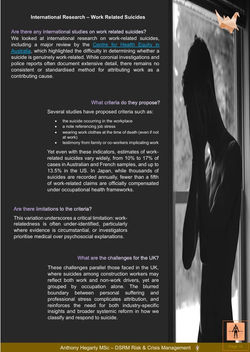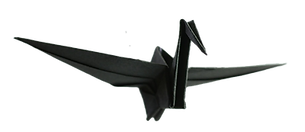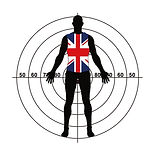
Operation Crane:
The Crane Report
An Investigation into UK Construction Industry Suicides
The Crane Report
Operation Crane is a UK-based investigation led by DSRM Risk & Crisis Management, a British consultancy with long experience in international death investigations.
The project examines patterns and causes of suicide in the construction industry, taking its name from Orizuru (折鶴) — the folded paper crane, a symbol of hope and resilience. It was inspired by Sadako Sasaki, the 12-year-old who folded a thousand cranes while fighting leukaemia caused by the Hiroshima bombing. Her hope was to live.
This report marks Stage 1 of a multi-phase investigation into suicide in the UK construction industry.
You may download the (Pdf) Section Reports below.
No personal details are required.

Sadako Sasaki
1943 ~1955
 |  |  |
|---|---|---|
 |  |  |
 |  |  |
 |  |  |
 |  |  |
 |  |
Scroll down for the full Crane Report
The Crane Report Podcast Feature:
The Crane Investigation and Mental Health in Construction
I recently joined Ashley Howard from the Kiely Group and Steve Kerslake from Construction in Sport to discuss critical findings from the Crane Investigation—our research into suicides across the UK construction industry. We explore the disconnect between current mental health initiatives and workers' actual needs, the importance of practical problem-solving, and why accountability and legislation changes are essential for creating genuine change in construction worker wellbeing.
Introduction & Executive Summary
We are pleased to share our Stage 1 Report on suicide in the UK construction industry. The report brings together international research and frontline insights to examine why existing approaches have struggled, and what practical steps could make a real difference.
Anthony Hegarty MSc
Introduction &
Executive Summary
Stage-1 Investigation:
Key Findings
Key Findings
The Key Findings test widely cited explanations against the evidence. Several commonly accepted narratives do not stand up to scrutiny, while important drivers of risk have been overlooked. Reading these findings first will help readers engage more effectively with the full section reports that follow.
The Crane Report
Section-1
Suicide Typologies - Construction Industry
Section-3
Industry Response -
Suicide Prevention Media
Section-5
Construction Recruitment &
The Prison Estate
Stage 2 - Surveys
This phase focuses on those individual stories. It will explore personal tragedies and begin to build behavioural and situational profiles. But we can only do this if enough people are willing to share their experiences.
There are two surveys available on this page:
-
One for those who found a way back from crisis.
-
One for those who knew someone who lost their life to suicide.
These surveys can be completed anonymously if you prefer.
Thank you.
Stage 3 - Industry Collaboration
Structured dialogues with construction firms, unions, and industry bodies to explore their views on root causes and the adequacy of current responses. We invite your input, thoughts, ideas, and what you see as solutions…just a few lines - “What do you think is the problem?”
Often in death investigations, it is just a comment, something inconsequential that someone noticed, that cracks the case. If you can spare a few thoughts, it could be you.
Please send your thoughts to: contact@dsrmrisk.com (Anonymous is Okay)
Stage 4 - Final Crane Report
Incorporating the surveys' analyses as well as the suicide data from Scotland and Northern Ireland (not currently included in official ONS reporting), alongside further refinement of UK-wide analysis.
Together, these stages aim to provide both evidence and lived experience, enabling a clearer understanding of risk and more effective prevention strategies.

Sadako’s thousand cranes were a wish for life. We hope our Final Report will fold the same wish into construction; toward dignity, safety, and life preserved.

